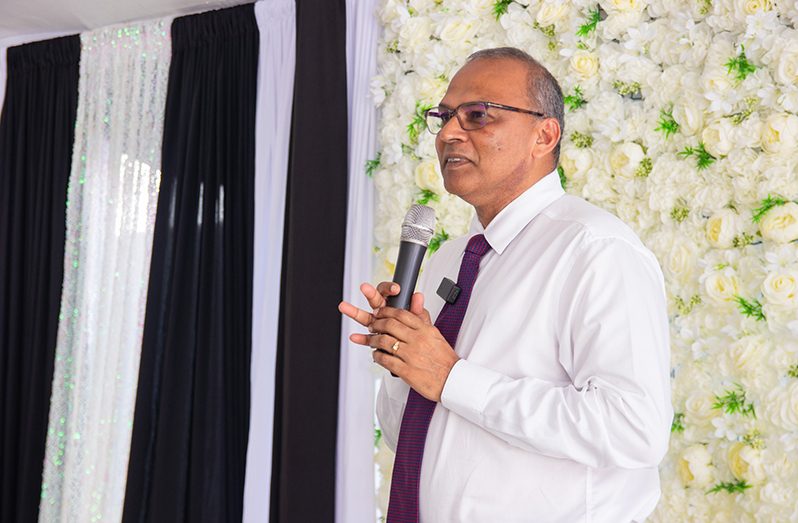By Feona Morrison
HIGHLIGHTING Guyana’s high diabetes rates, Health Minister Dr. Frank Anthony has emphasised the importance of educational initiatives in preventing conditions that cause dialysis.
He emphasised the importance of proactive health management and advocated for enhanced public awareness and education initiatives to reduce the incidence of kidney disease.
Diabetes is the primary cause of kidney failure, characterised by the inability to eliminate waste from the body and regulate bodily fluid balance. Additionally, diabetes is a chronic ailment that disrupts the body’s normal process of converting food into usable energy. Guyana has witnessed an estimated 60,000 reported cases of diabetes, with dialysis treatment being administered to more than 300 individuals.
During the inauguration of the Olmac Medical Hub at Vreed-en-Hoop, West Coast Demerara (WCD) on Monday, Dr Anthony remarked, “In Guyana, we have too many persons who are affected by diabetes. Talking to people about pre-diabetes, diabetes and all these things is still a little new and we need to educate people. We need to talk to them about their diet.”
He pointed out that many individuals neglect portion control, which is essential for promoting healthy eating habits and managing chronic conditions such as diabetes.
The health minister said: “We don’t have portion control. We eat a lot of rice and we don’t balance it off with vegetables and the other nutritious things. I think what is very, very important is educating people so that we can prevent a lot of persons from needing dialysis. We wouldn’t eradicate it, but we would reduce the number of persons needing dialysis.”
As the number of individuals impacted by this chronic ailment rises, Guyana faces the daunting task of ensuring sufficient care and resources to effectively manage the disease. Nonetheless, the nation has made notable progress in extending healthcare accessibility to all its citizens.
For instance, Minister Anthony highlighted that through partnerships with the private sector and non-governmental organisation’s (NGOs), dialysis services have been expanded to several regions, compared to previous years when patients requiring dialysis, were forced to travel to Georgetown to seek treatment.
“At one time, dialysis was very challenging. So, people in Essequibo could not have gotten dialysis, people in Linden couldn’t get dialysis, people in [Region Three] couldn’t get dialysis and so forth. We are changing that gradually. In some of the other places where they don’t have dialysis, we have been working in partnership with different companies, different NGOs, so that they can manage the service and we [the government] can pay for some of the sessions for the patients.”
The expenses linked with dialysis treatment impose a significant financial strain on patients.
In order to address this burden, he mentioned that the government implemented a programme in 2022 with the objective of providing financial support to individuals dealing with kidney failure and requiring dialysis—a vital treatment for managing their health condition. An annual subsidy of $600,000 is provided to those who are impacted by end-stage kidney disease. Furthermore, the government has provided them with medical aid.
In an effort to enhance diabetes care and reduce mortality rates, the Ministry of Health partnered with Mount Sinai Health System last year. Collaboratively, they deployed devices with the ability to monitor blood glucose levels for extended periods. Moreover, the implementation of new treatment guidelines was incorporated as a component of these efforts.
The Georgetown Public Hospital Corporation (GPHC) achieved a historic milestone in January with the successful execution of the first laparoscopic donor nephrectomy in Guyana.
The surgical procedure was conducted on a female donor who voluntarily provided her kidney to a male relative, aged 17. The youth had been grappling with the persistent condition of chronic kidney failure.




.jpg)









